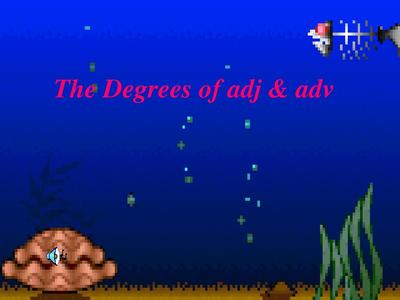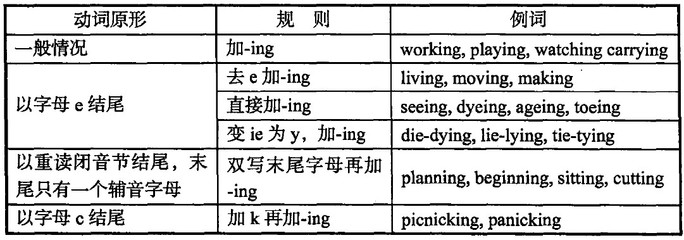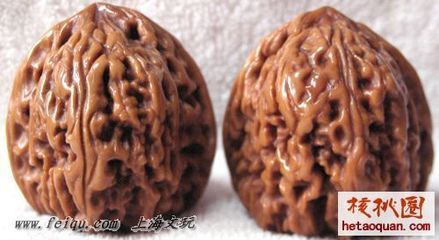副词(adv.)修饰形容词或动词,形容词(adj.)修饰名词或者代词.
副词一般以ly结尾. 副词在句中作状语,一般靠近谓语动词或者在句首或者句末.形容词靠近所修饰的名词或代词,作定语.
建议你多读英语课本,有意识的分析句子的结构,找出主.谓.宾. 相信你的外语会有明显的提高的.
容易混淆的形容词和副词
形容词用来修饰名词;副词用来修饰动词、形容词、其他副词或整个句子。
可是,有时形容词和副词容易混淆。例如“A fast train reached the destinationfast”中的第一个“fast”是形容词,第二个就是副词。
此外,有些词既能是形容词,也能是副词,有些词义不变,另些词义不同;有些形容词加上后缀“-ly”构成的副词和原来的形容词意思相近,但有一些意义则相差甚远;更有些形容词,除自己本身能兼而充当副词之外,又可以再加上后缀“-ly”构成派生副词,若不小心,容易引起混淆。
下面分别举例说明:
⑴可作形容词又可作副词,词义不同如:
①a. Joelle is a pretty child.(形容词)
b. Tom will be back prettysoon.(副词)
②a. The old man has been ill for sometime.(形容词)
b. Don't speak ill ofothers.(副词)
⑵既是形容词,也是副词,句子中的语法功能不同,但意义一样,如:
③a. What a deep ocean it is !(深的)
b. The boy dug deep into theground.(深)
④a. Look at the high mountain!(高的)
b. Birds fly high in thesky.(高)
⑶形容词可以充当副词,又可以加上后缀,构成派生副词。在某些场合,两者相近,可以通用(如例⑤和⑥);在另一些场合里,两者意思有异,不可混为一谈(如例⑦和⑧):
⑤a. Hold it tight, please!
b. Hold it tightly,please!
⑥a. Please read slower.
b. Please read moreslowly.
⑦a. John came late yesterday.(迟)
b. John has been working hardlately.(最近)
⑧a. Jason works hard.(努力地)
b. Susan hardlyworks.(几乎不)
⑷有些形容词或副词,同时有多个意思,如:
⑨a. Hard labour(苦工)
b. Hard times(艰难时代)
⑩a. The baby is fast asleep.(睡得熟)
b. Run fast, please!(请快跑)
c. Hold the ropefast!(紧握绳索)
⑸同词根的派生形容词和形容词及分词间,意思虽甚接近,但容易引起混乱,如:
11a. The child is sleepy.(昏昏欲睡)
b. The child is stillasleep.(还在睡眠中)
c. Why are you looking at thesleeping child?(睡着的)
12a. Diana feels lonely/ lonesome in the bighouse.(感到寂寞)
b. Mary was alone in theoffice last night.(独自)
13a. Irene was awake the whole night lastnight.(整夜未眠)
b. Tom had a wakeful nightlast night.(整夜未眠)
c. What did you do during yourwaking hours last night?(醒着的时刻)
(a)和(b)意思相近,但(a)的 awake只能作补足语;(b)的 wakeful 则没有这个局限。(c)里的waking现在分词和(a)及(b)的两个形容词也似同非同,不易随意取代。
在英语中,某些形容词词形同时也可作副词,但这些形容词还有加后缀-ly副词的形式,因此这类词就有两种副词形式,它们在用法上有些可以互换, 有些是有区别,下面笔者对这类词做一总结。
一般地说,可以互换的这类词,形容词词形的副词表示比较具体的概念,经常用语口语中,不太正式;后缀-ly形式的副词,表示比较抽象的概念,有引申义,并有一定感情色彩,变副词比较级时,用此类副词,如修饰动词和分词,放在它们前面。
1) cheap: often used instead of cheaply, esp. in casualconversation and with verbs like buy and sell
Do you likethis shirt? I bought it really cheaply.
cheaply I can't sell you more cheaply.
2) clean: completely, used with (1) verb forget (2) the propositionover, through (3) adv away out
I ~ forget.The ball sailed ~ over the roof.
The prisonergot ~ away. I am afraid I am clean out of food.
cleanly: precisely in a clean manner, often used with v cut.
He caughtthe ball ~ . The doctor cut ~ through the abdominal wall.
3) clear: not touching
Please standclear of the gate.
clearly: distinctly, obviously, similar to the meaning ofclear
I can't see~ without my glasses.
We ~need tothink again.
4) close: near
Come close,I want to tell you something.
closely: carefully, with great attention
Study this ~it's very important.
5) dead: exactly completely, used in certain expressions
~ right, ~sure, ` tired, ~ slow, ~ ahead, ~ drunk, ~straight
deadly: fatally
He was ~injured in the crash.
6) direct: used instead of directly in talking about journeys andtimetables
The planegoes ~ from London to Houston.
7) easy: used in certain expressions
Take iteasy. easy come, easy go.
Easier saidthan done.
easily I can do very easily.
8) fair: used in the expression play ~, fight ~
fairly: justly, honestly
You must doit ~.
9) fine: well, used in some expressions
That suitsme fine. You are doing ~.
finely: elaborately (细微地) (not commonly used
He studiedit very finely.
10) free: without payment
You can'teat ~ in my restaurant.
freely: without limit or restriction(限制)
You can'tspeak ~ in front of my father.
11) hard: to show degree
He hithard.
hardly: almost not
12) high it refers to high position.
Don't gohigher. It is dangerous.
highly: it refers to an extreme degree "very much".
She is ~paid. It is ~ amusing.
13) just: a moment ago I have just comehere.
justly: in accordance with justice or the law.
You must doit justly.
14) late: not on time He hatesarriving late.
lately: recently I haven't heard from youlately.
15) loud: used instead of loudly in informal conversation with theverbs talk, speak, shout, laugh
loudly: in a big voice They quarreled ~.
16) low: in a small voice
Can youspeak low?
lowly: in a humble way
Don't speakto him lowly.
17) most:very Which doyou like most?
mostly: mainly, most often, in most cases
18) pretty: rather ~ well, ~soon
prettily: pleasing to people (悦人地)
He danced~.
19) quick: in informal English used instead of quickly
quickly He acted ~.
20) real in informal English used instead of really
really Are you ~ tell me thetruth.
21) right: just, exactly, all the way
The ball hitme ~ in the nose.
He arrived ~after breakfast.
Turn rightat the traffic lights.
rightly: correctly right can be used informallyinstead of rightly
You guessedright(ly)
22) sharp: punctually 准时地
He arrivedat six o'clock ~.
sharply: 锐利地,急剧地
look ~ speak ~
23) short: suddenly
The carstopped suddenly.
shortly: soon He will comeshortly.
24) slow used in informal conversation instead of slowly
go ~, drive~
25) sound: 彻底地 used in the expression soundasleep
soundly: 非常好地 He is sleeping soundly.
26) straight and straightly used in the same way.
27) sure: used in American English meaning certainly
surely: He speaks very surely.
28) tight: used instead of tightly in informal conversation.
hold ~, pack~. The door was shut ~.
tightly: We'd better sit tightly.
29)wide: He opened his eyes wide.
widely: in many different places
He hastraveled widely.
30) wrong used instead of wrongly in informal conversation.
You guessedwrong(ly)
 爱华网
爱华网


